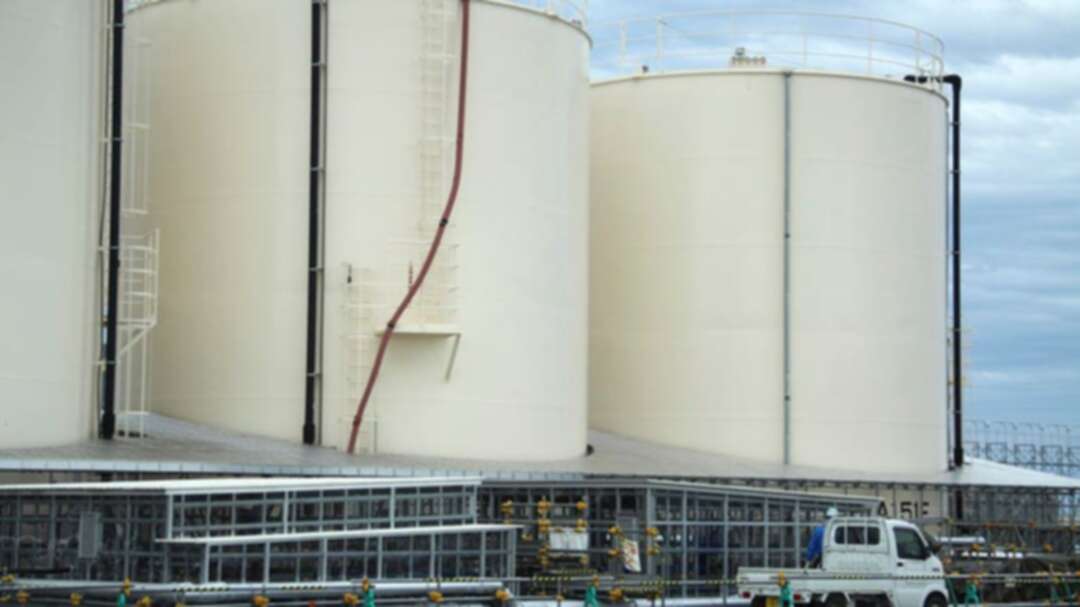-
Japan gov't proposes Fukushima water release to sea or air

Japan's economy and industry ministry has proposed gradually releasing or allowing to evaporate massive amounts of treated but still radioactive water at the tsunami-wrecked Fukushima nuclear plant.
The proposal made Monday to a body of experts is the first time the ministry has narrowed down the options available to just releasing the water. It is meant to tackle a huge headache for the plant's operator as storage space runs out, despite fears of a backlash from the public.
Nearly nine years after the 2011 triple meltdowns at Fukushima Dai-ichi, the radioactive water is still accumulating as the water is needed to keep the cores cooled and minimize leaks from the damaged reactors.
For years, a government panel has been discussing ways to handle the crisis and to reassure fishermen and residents who fear potential health impacts from releasing the radioactive water as well as harm to the region's image.
In Monday's draft proposal, the ministry suggests a controlled release of the water into the Pacific, allowing the water to evaporate, or a combination of the two methods.
The ministry said a controlled release into the sea was the best option because it would “stably dilute and disperse” the water from the plant using a method endorsed by the United Nations' Scientific Committee on the Effects of Atomic Radiation. It also would facilitate monitoring of radiation levels in the environment.
Releasing the entire amount of water over one year would only increase radiation levels to thousands of times less than the impact humans usually get from the natural environment.
In the proposal, the ministry noted that evaporation has been a tested and proven method following the 1979 core meltdown at Three Mile Island, where it took two years to get rid of 87,000 tons of tritium water.
The government and the plant operator, Tokyo Electric Power Co., have been unable to get rid of the more than 1 million tons of radioactive water that has been treated and stored due to opposition from local fishermen and residents fearing further damage to Fukushima's reputation and recovery. The utility has managed to cut down the volume of water by pumping up groundwater from upstream and installing a costly underground “ice wall” around the reactor buildings to keep the water from running into the area.
TEPCO says it has space to store only up to 1.37 million tons and only until the summer of 2022, raising speculation that the water may be released after the Tokyo Olympics next summer. TEPCO and experts say the tanks get in the way of decommissioning work and that they need to free up the space to build storage for debris removed and other radioactive materials. The tanks also could spill out their contents in a major earthquake, tsunami or flood.
Experts, including those at the International Atomic Energy Agency who have inspected the Fukushima plant, say the controlled release of the water into the ocean is the only realistic option, though it will take decades.
A government panel earlier compiled a report that listed five options, including releasing the water into the sea and evaporation. The three others included underground burial and an injection into offshore deep geological layers.
The panel has also discussed possibly storing the radioactive water in large industrial tanks outside the plant, but the ministry proposal ruled that out, citing risks of leakage in case of corrosion, tsunamis or other disasters and accidents, as well as the technical challenge of transporting the water elsewhere.
Source: The Associated Press
You May Also Like
Popular Posts
Caricature
BENEFIT Sponsors BuildHer...
- April 23, 2025
BENEFIT, the Kingdom’s innovator and leading company in Fintech and electronic financial transactions service, has sponsored the BuildHer CityHack 2025 Hackathon, a two-day event spearheaded by the College of Engineering and Technology at the Royal University for Women (RUW).
Aimed at secondary school students, the event brought together a distinguished group of academic professionals and technology experts to mentor and inspire young participants.
More than 100 high school students from across the Kingdom of Bahrain took part in the hackathon, which featured an intensive programme of training workshops and hands-on sessions. These activities were tailored to enhance participants’ critical thinking, collaborative problem-solving, and team-building capabilities, while also encouraging the development of practical and sustainable solutions to contemporary challenges using modern technological tools.
BENEFIT’s Chief Executive Mr. Abdulwahed AlJanahi, commented: “Our support for this educational hackathon reflects our long-term strategic vision to nurture the talents of emerging national youth and empower the next generation of accomplished female leaders in technology. By fostering creativity and innovation, we aim to contribute meaningfully to Bahrain’s comprehensive development goals and align with the aspirations outlined in the Kingdom’s Vision 2030—an ambition in which BENEFIT plays a central role.”
Professor Riyadh Yousif Hamzah, President of the Royal University for Women, commented: “This initiative reflects our commitment to advancing women in STEM fields. We're cultivating a generation of creative, solution-driven female leaders who will drive national development. Our partnership with BENEFIT exemplifies the powerful synergy between academia and private sector in supporting educational innovation.”
Hanan Abdulla Hasan, Senior Manager, PR & Communication at BENEFIT, said: “We are honoured to collaborate with RUW in supporting this remarkable technology-focused event. It highlights our commitment to social responsibility, and our ongoing efforts to enhance the digital and innovation capabilities of young Bahraini women and foster their ability to harness technological tools in the service of a smarter, more sustainable future.”
For his part, Dr. Humam ElAgha, Acting Dean of the College of Engineering and Technology at the University, said: “BuildHer CityHack 2025 embodies our hands-on approach to education. By tackling real-world problems through creative thinking and sustainable solutions, we're preparing women to thrive in the knowledge economy – a cornerstone of the University's vision.”
opinion
Report
ads
Newsletter
Subscribe to our mailing list to get the new updates!






















